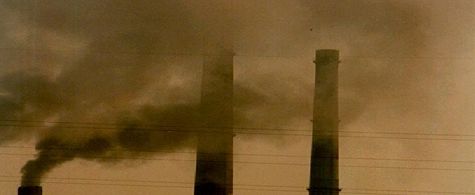ENVIRONMENTAL CONVENTIONS


While the world's climate has always varied naturally, the vast majority of scientists now believe that rising concentrations of "greenhouse gases" in the Earth's atmosphere, resulting from economic and demographic growth over the last two centuries since the industrial revolution, are overriding this natural variability and leading to potentially irreversible climate change. The 1992 United Nations Framework Convention on Climate Change and the 1997 Kyoto Protocol provide the foundation for intergovernmental efforts to address this problem.
Although protection measures for the climate and the ozone layer are generally treated separately, the mutual relations between the two subjects become obvious in many fields. For instance, some of the substances that were initially regarded as substitutes for Ozone Depleting Substances (ODS) have now been recognised to have a strong impact on global warming. Moreover, most cooling equipment still relies on fossil fuel as a source of energy. So any technology that uses energy for cooling more efficiently contributes to reducing CO2 emissions.